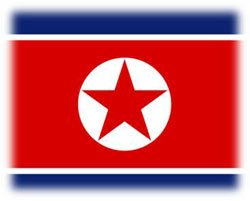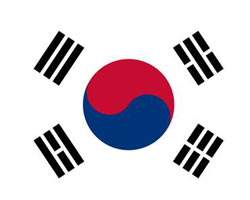S.Korea stops anti-Pyongyang leaflets
| Latest News |
S.Korea stops activists from sending anti-Pyongyang leaflets
South Korean authorities on October 22 stopped activists from sending propaganda leaflets across the border following threats from the Democratic People's Republic of Korea (DPRK) to open fire.
North Korea threatens strike
North Korea on October 19 threatened a "merciless" military strike on South Korean territory, prompting a swift vow of retaliation from Seoul in a serious escalation of cross-border tensions.
The Korean People's Army (KPA) said it would launch the attack if North Korean defectors in the South went ahead with plans to scatter anti-Pyongyang propaganda leaflets on October 22 from balloons floated over the border.
S.Korea president visits border island
South Korean President Lee Myung-bak made a surprise visit on October 18 to an island near the tense border with North Korea that was shelled by Pyongyang two years ago.
Stressing the need to defend the maritime border "to the last man," Lee said the 2010 attack on Yeonpyeong island was an example of North Korea's tendency to launch isolated, provocative assaults out of the blue.
| Tit for Tat |
 North Korea |
 South Korea | |
★"An undisguised psychological warfare." ★DPRK's Korean People's Army: threatened in a statement to carry out a "merciless military strike" on the South Korean territory "the moment a minor movement for the scattering is captured" in the border area. |
★"We will completely destroy the source of attack". ★Foreign minister Kim Sung-hwan: "I believe being a member of the Security Council itself will bolster deterrence against North Korea (DPRK), now that we can directly discuss its provocations at the council." |
| Voices from China |
China: a neutral stance
China expects related parties to remain calm and restrained, not to take provocative or radical actions and jointly safeguard the peace and stability on the Korean Peninsula.
a war is not likely to break out on the Korean Peninsula at this moment. "The situation could spin out of control if either side acts radically. However, chances of that happening are slim with South Korea facing an upcoming election and considering North Korea's ailing economy."
Escalation of tensions on the Korean Peninsula will bring unrest to all of Asia, which is something China has been trying to avoid. it is not surprising to see the tensions escalating as relations between the two countries deteriorated after Lee Myung-bak took office.
"Some of his foreign policies, especially the recent US-South Korea missile agreement which extends the firing range of their weapons, have rattled the nerves of the North."
| Previous Leaflets |
February, 2012: South Korean activists vowed to send balloons filled with leaflets critical of North Korea across the border on TFebruary 9, when Pyongyang plans an elaborate commemoration for late leader Kim Jong-il.
July, 2012: North Korea has dropped thousands of leaflets attacking South Korea's government across their shared border for the first time in 12 years. South Korean soldiers collected 16,000 leaflets floated by the North across the heavily-fortified frontier over five days from July 21.
The leaflets contain criticism of President Lee Myung-bak's administration and of its alleged plot to destroy a statue of the North's late leader Kim Jong-il.
| Other Disputes |
Maritime
Navy ships from the South on September 21 fired warning shots at six North Korean fishing boats that crossed the disputed Yellow Sea border, in the latest in a series of similar incursions.
Missile
South Korea is now allowed to develop ballistic missiles with a range of up to 800 kilometers, more than double the current limit, under a revised pact with the United States to better respond to percieved missile threats from the Democratic People's Republic of Korea (DPRK).
North Korea said it possessed rockets capable of striking the US mainland, as it slammed a new US-South Korean deal to extend the range of the South's missile systems as a provocation for war.
Nuclear
North Korea's new constitution proclaims its status as a nuclear-armed nation, complicating international efforts to persuade Pyongyang to abandon atomic weapons.